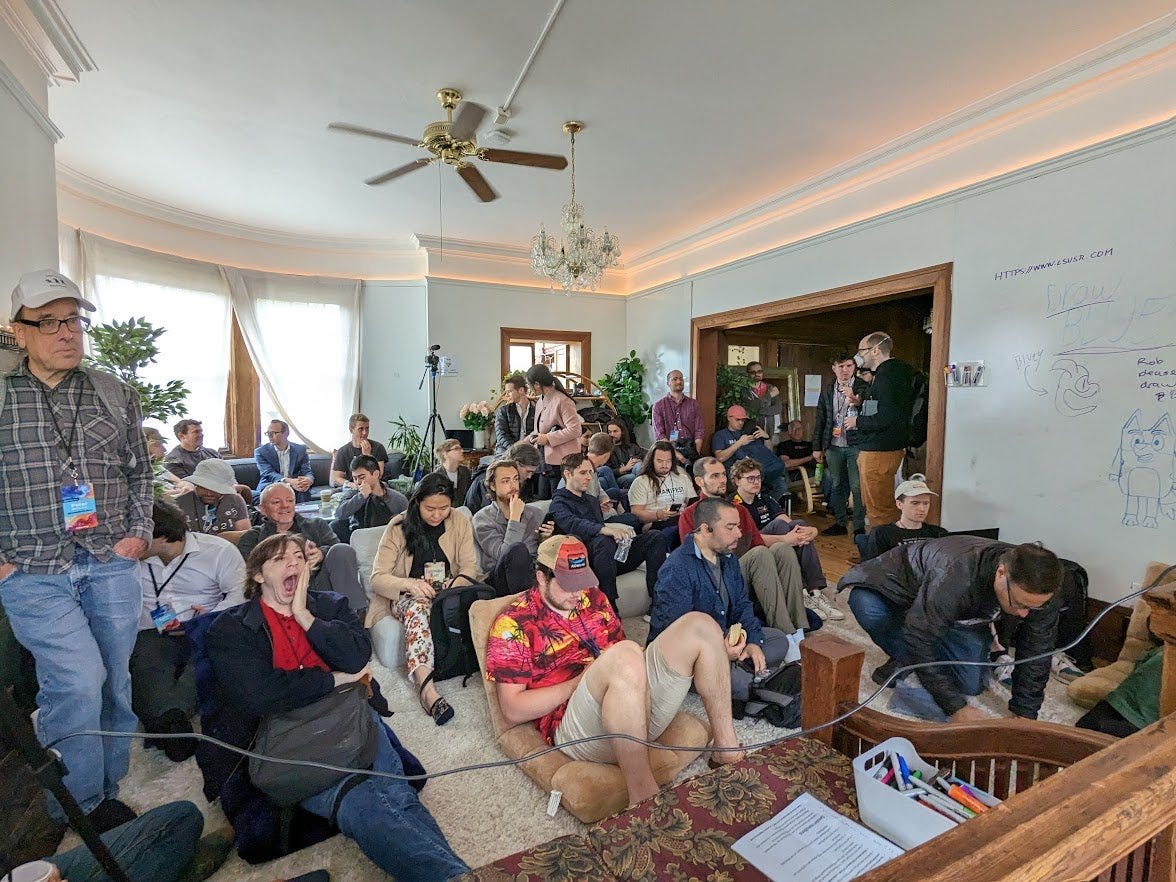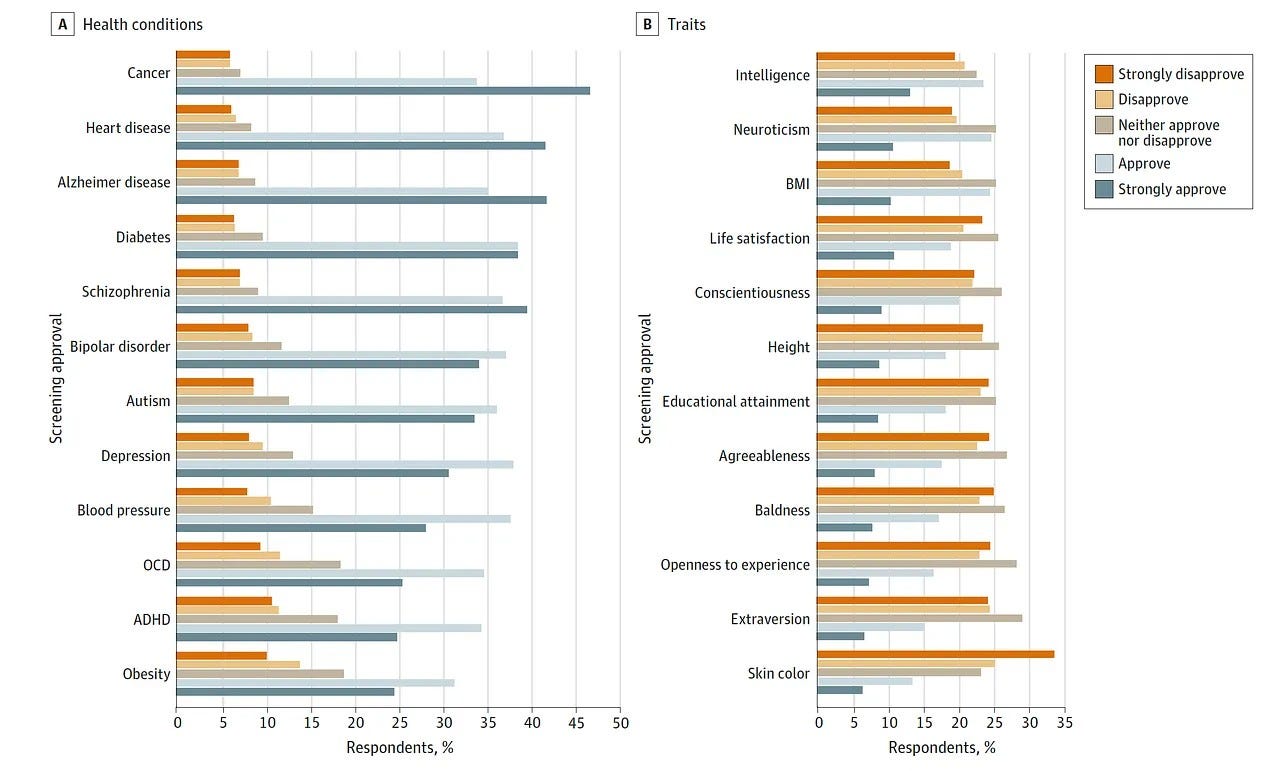https://twitter.com/hsu_steve/status/1799555617725796757
Last weekend I attended Manifest, a festival sponsored by Manifold Markets, held at the Bay Area rationalist campus Lighthaven.
This is what I tweeted about it:
You missed the 60s -- don't miss this :-)
AGI: P(doomers) vs Accelerationist fisticuffs
Superbabies and genetic engineering
Gambling, Markets, Markov, Futurism
Neurodivergence proudly on display
All the Crazy Ideas that will shape future thought are here
Lighthaven Berkeley CA
The Lighthaven campus was developed with financial assistance from Skype founder and AI investor Jaan Tallinn (see my recent podcast conversation with Jaan). It’s a beautiful venue about 1 mile south of the UC Berkeley campus - a great place to host a conference, which fosters interactivity in a relaxed, private, and aesthetic environment.
Manifest was zany fun. It was all about ideas - AGI, AI Safety, prediction markets, genetic engineering, rationality, economics, philosophy, geopolitics. See here for some essays about the event, and lots of photographs.
Sadly, The Guardian published a hit piece about Manifest.
The article attempts, via shoddy journalism, to link the festival and Lighthaven to SBF and FTX (major donors to Effective Altruism), and describes some of the participants as racists, misogynists, capitalists, etc.
As you might expect, sessions at Manifest covered a broad range of topics - see schedule. Sessions most objectionable to The Guardian were presumably the ones on pro-natalism (largely academic discussion of fertility decline and consequent problems + exhortations to have more kids!) and genetic engineering / embryo selection (“superbabies”).
It has been claimed that Jason Wilson, lead author of the article, is an Antifa activist:
See debunking of factual claims in the article concerning Lighthaven and connections to SBF/FTX.
The article quotes Daniel HoSang, an activist professor of political science. HoSang and I were colleagues at the University of Oregon over a decade ago. He has been a vocal opponent of advances in computational genomics, often conflates this work with scientific racism, and refers to researchers in the field as racists.
I wrote this in 2012:
HoSang once publicly stated (during a social science seminar at Oregon I attended) that he would "do everything in his power" to oppose another (Sociology) faculty member's effort to explain recent genetic results to the broader field. I found this statement so odd that it stuck in my memory. The paper that elicited the threat is published here. The story behind the publication of the paper (which took something like 4 years; I have read the actual referee reports), authored by a faculty member who has held tenured positions at both Oregon and Dartmouth, is shocking and contributed to my comments in the last paragraph above.
Genetic clustering of human populations by ancestry or geographical origin (also referred to as "population structure"; not something I work directly on) is uncontroversial in genomics. It is illustrated, e.g., here (figure from a paper in Science, obtained via a blog at Discover Magazine -- hardly hotbeds of controversy), and explained a bit more mathematically here. See also this Nature article describing Eigenstrat, a standard software tool used to correct for population structure in genetic studies (yes, it's really there -- we can't wish it away).
Let me elaborate on the incident described above, because it is almost too fantastical to believe. It occurred in the 2000s, when clustering of ancestral populations by genotype was still poorly understood, even by many geneticists. For the first time, datasets of ~1k individuals from diverse ancestries could be subjected to clustering analysis, which showed that the average genetic distance between individuals varies by ancestry group.
This was highly controversial among social scientists, because they had been teaching for decades that “race is a social construct” etc. While clustering by geographical ancestry does not directly address race (because of ambiguities in the way the word is used by ordinary people, changing over time), the discovery of clustering alarmed activists like HoSang.
See here and here for historical context - genomic clustering analysis and the ideological reactions to it, circa 2005.
I review this intellectual history, and the incident involving HoSang, because it illustrates anti-scientific behavior of activists in academia. Of course, all of the science on ancestry clustering is now well-established! The same mathematical techniques are used by companies like 23andMe and Ancestry to genotype tens of millions of customers and report on their geographical ancestry.
Recall HoSang said he would “do everything in his power” to resist these developments!
After reviewing his previous behavior and ideological commitments, it is not surprising that HoSang would be violently opposed to newer technologies like embryo selection and genetic engineering, even though they have been shown to deliver important benefits to families and patients, and are widely pursued by thousands of researchers both in academia and at private companies.
Hence one can understand his connection to the Guardian journalist and the outrageous quotes he provided for the article. It is ideological activism, and nothing more.
In this recent survey, published by Harvard researchers, there was overwhelming support of embryo selection in IVF to reduce health risks.
Addendum: The Guardian article intimates (HoSang quote) that I am linked to Ron Unz, Steve Sailer, and Stefan Molyneux. You can judge for yourself, based on the facts below, whether this is accurate reporting or deliberately misleading.
I’ve known Ron Unz for many years. Ron left theoretical physics at Stanford to run a company called Wall Street Analytics, which built software for pricing mortgage backed securities. Many physicists I know worked at his firm, which was acquired by Moody’s just before the financial crisis of 2008. Corey Washington and I interviewed Ron on Manifold about the subprime mortgage crisis and other topics.
Obviously I don’t necessarily endorse his opinions or policy positions. But I can remain friends with someone with whom I disagree. I have Socialist friends, deeply religious friends, even friends who believe in the Copenhagen Interpretation of quantum mechanics!!
I’ve never met Steve Sailer, and obviously I don’t endorse all of his opinions or policy positions.
Stefan Molyneux interviewed me on his YouTube show, mostly about embryo selection, polygenic prediction, and cognitive ability. In the episode I urge him to be cautious about inferences concerning genetic group differences. I have not communicated with him since appearing on his show.










What do you consider to be scientific racism? As far as i can tell, it is either simply a strawman that does not exist, or you define racism as something that is obviously true.
"In the episode I urge him to be cautious about inferences concerning genetic group differences."
To be fair, one can plausibly argue that even if one does believe in genetic group differences, it should not be considered racism:
https://www.unz.com/akarlin/race-denial-vs-racism-a-false-dichotomy/
Anyway, excellent article, Steve!